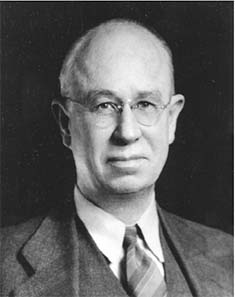 To Roy Wood Sellars
To Roy Wood Sellars
22 Beaumont St.
Oxford, England. October 30, 1917
Dear Mr. Sellars,
It was a great pleasure to receive your essay, which I have just finished reading. After your book on “Critical Realism” I was prepared for a general agreement as to your results, in the wide sense in which they are naturalistic and admit a subjective sphere as well as a physical one. In analysis and in language, however, I find now that we differ more than I had believed. Indeed, I am afraid I have no right to figure as the critical realist for whom you speak: and perhaps, if my paper (and Strong’s) are included in the book at all they ought to be relegated to an appendix, with a note (which Strong might compose) explaining that our point of view differs in some important respects from that of the other contributors. In fact, it differs so much, and so pervasively, that it would be useless for me to send any specific comments on particular passages. You know what these differences are as well as I do. If I may make one suggestion, however, which does not concern my own views directly, it is that you should revise somewhat, or omit, your comments on Plato and Aristotle, and soften the tone of those you make on Kant. As they stand I am afraid they will arouse hostility and controversy, rather than help to clarify or to recommend the views you are advocating. Personally, I also feel some doubts about the advisability of making so much of abstracted philosophical disciplines—psychology, epistemology, ontology, metaphysics, etc. What a man thinks he thinks, and if it is true of its object, I can’t believe it makes much difference which ‘ology we put it under. I am also—but this I know is wicked of me—sceptical about the “increased prestige of science” or the advance of everything in recent times. There are changes which doubtless involve improvements in some respects—even the war does that—but that the balance of recent change is for the good in philosophy does not seem to me plausible. For one thing there are no great men: and I wonder if a philosophy is substantially improved when its personal accent and symbolism are flattened out into scholastic technique. Strong (who I suppose has a separate copy of your essay: else I can send him mine) will doubtless send you detailed observations, to which you may regard me as subscribing beforehand.
Yours sincerely
G Santayana
From The Letters of George Santayana: Book Two, 1910-1920. Cambridge, MA: The MIT Press, 2001.
Location of manuscript: Bentley Historical Library, The University of Michigan, Ann Arbor
To Charles Augustus Strong
22 Beaumont St.
Oxford, England. October 30, 1917
Today I receive Sellars’ paper. It is dreadful, at least in form and quality, for I have read only a quarter of it so far. I feel almost ashamed of the company we have got into. What logic, what style, what text-book knowledge of the history of philosophy, crammed up to pass a Ph.D. examination! Sellars on Plato and Aristotle is enough to make one despair. Let us by all means have a compartment to ourselves, if we must travel in the same train; and you may denounce “representativism” (representationism?) for me as much as you will. Lovejoy, if he contributes, will raise the quality of the book, even if he doesn’t correct its errors.
From The Letters of George Santayana: Book Two, 1910-1920. Cambridge, MA: The MIT Press, 2001.
Location of manuscript: Rockefeller Archive Center, Sleepy Hollow NY
